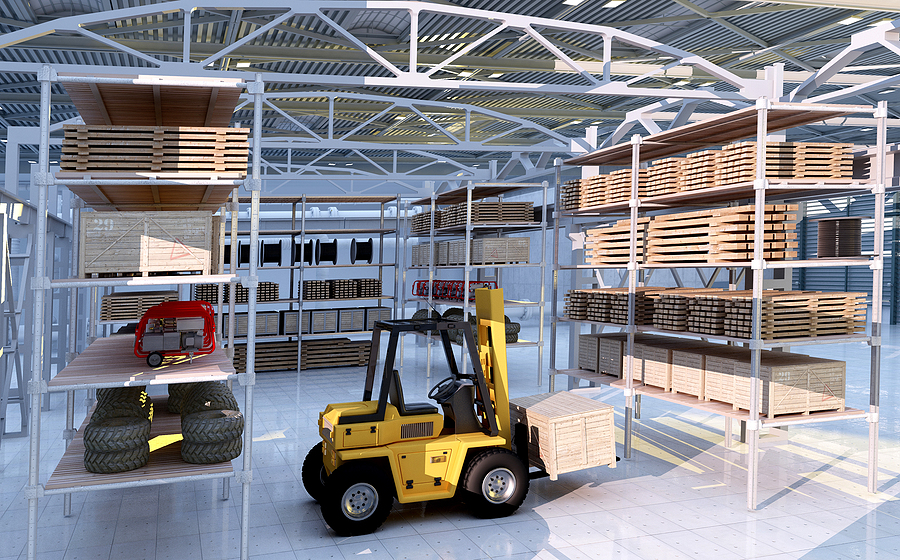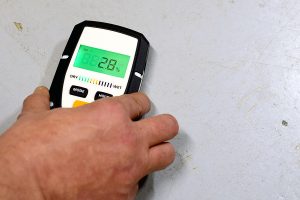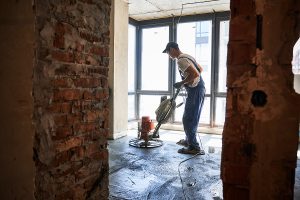What Every Warehouse and Facility Manager Needs to Know
If you manage a warehouse or industrial facility, you already know your floors take a beating. Between heavy equipment, constant movement, chemical spills, and relentless foot traffic, there’s no room for weak or inconsistent surfaces. And when it comes to areas with forklift traffic, the demands go up even higher. This is exactly where industrial epoxy coatings earn their reputation. Not only do they look clean and professional, but they’re also engineered to withstand the exact kind of stress that forklifts dish out, day after day, year after year.
In this post, we’ll break down how epoxy coatings for warehouses hold up under pressure, what makes them different from other flooring solutions, and why proper surface prep, like concrete floor polishing, matters more than most people realize.
Forklifts: The Ultimate Flooring Stress Test
Forklifts might not look fast, but they put a surprising amount of stress on warehouse floors. Consider the weight: a standard forklift can weigh 9,000 pounds or more, and that’s before it’s carrying a heavy load. All of that pressure gets focused through a small set of tires, often made of hard rubber or polyurethane.
Now factor in frequent stops, turns, loading zones, and the occasional dropped pallet or oil leak. Your floor has to deal with:
- Constant friction from turning
- Impact from drops or collisions
- Pressure from static loads
- Chemical exposure (oils, fuels, solvents)
- Abrasive dirt and grit are dragged in from loading docks
A regular concrete slab might seem strong, but over time, even the hardest concrete starts to chip, crack, or erode under these conditions. That’s why industrial epoxy coatings are so important for long-term durability.
Why Epoxy Works for Forklift Zones
Epoxy coatings are resin-based systems applied directly over prepped concrete. When properly installed, they cure into a hard, seamless, and highly durable surface. And unlike paint or sealers, epoxy forms a chemical bond with the concrete itself, creating a floor that’s far more than just a surface treatment.
So, what makes epoxy ideal for forklift traffic?
Impact Resistance
Forklifts occasionally drop or slam loads—intentionally or not. Epoxy coatings are formulated to resist damage from these impacts, helping to prevent chips or cracks that could otherwise spread over time.
Abrasion Resistance
Every tire rotation wears down a surface just a bit. Epoxy coatings are designed to resist that slow erosion, even with constant tire movement and pivoting.
Chemical Protection
Fuel drips, hydraulic fluid, brake dust—it’s all part of the environment. Epoxy resists penetration from oils, acids, and solvents, protecting the concrete below and making cleanup easier.
Load Distribution
Epoxy coatings help distribute weight more evenly across the floor, reducing stress points on the concrete slab and prolonging structural integrity.
Safety and Visibility
Epoxy floors can be customized with safety striping, reflective flakes, or high-visibility coatings to improve safety and navigation in forklift lanes.
In short, epoxy doesn’t just survive forklift traffic; it’s built for it.
Thickness Matters: Epoxy That Can Take a Beating
Not all epoxy floors are the same. In high-traffic industrial zones, thickness and formulation make a huge difference.
Basic commercial epoxy floors might be just 10–20 mils thick. But epoxy coatings for warehouses with forklift use often require a system that’s 100 mils or more, especially in high-stress areas like loading docks or staging lanes.
Thicker coatings offer better protection against gouges, impacts, and long-term wear. Many industrial floors also incorporate a high-build epoxy primer, followed by a build coat, and finished with a topcoat that includes anti-slip additives or chemical resistance.
That multilayered approach is what gives industrial epoxy its toughness and longevity.
Surface Prep: Where Concrete Floor Polishing Comes In
Before epoxy can do its job, the surface beneath it has to be properly prepared. If the concrete is dirty, uneven, or poorly profiled, even the best epoxy coating can fail.
That’s why concrete floor polishing or grinding is such a critical step in the process.
Polishing removes old coatings, oils, and imperfections while creating the right surface profile for epoxy to bond to. It opens the pores of the concrete and eliminates contaminants that could cause delamination later on.
Some facilities choose to use polished concrete on its own for certain areas, but when used under epoxy, it sets the foundation for maximum durability. A clean, level, and properly profiled floor means the epoxy can form a tight mechanical and chemical bond, reducing the risk of peeling, bubbling, or early wear.
Common Warehouse Epoxy Options
Depending on your facility’s needs, there are several types of industrial epoxy coatings available:
High-Build Epoxy Systems
These are thick, multilayer coatings ideal for forklift traffic. They’re extremely durable and often used in manufacturing plants and logistics centers.
Quartz or Flake Systems
These decorative finishes are not just for looks. The added texture improves traction and provides another layer of durability, especially in areas where forklifts and foot traffic overlap.
Epoxy Mortar Systems
This is the strongest epoxy option, made by combining epoxy resin with graded sand or quartz to form a troweled-on surface. It’s ideal for the most demanding environments, including heavy machinery shops or high-impact loading areas.
ESD Epoxy
For electronics manufacturers or sensitive storage environments, electrostatic discharge (ESD) epoxy coatings help protect products from damage caused by static electricity, while still handling forklift traffic.
Each type can be customized with colors, patterns, and finishes, allowing facilities to combine performance with brand-friendly design.
Epoxy Maintenance for Forklift Areas
Epoxy is known for being low-maintenance, but low doesn’t mean no maintenance.
For forklift zones, regular cleaning is a must. Grit and debris act like sandpaper under heavy tires, so sweeping and scrubbing with a pH-neutral cleaner can dramatically extend the life of your coating.
Inspections are also key. Look for signs of wear in high-traffic areas, especially near turns, docking zones, and staging areas. Touch-ups and recoats can usually be done without full floor replacement, helping you maintain protection without major downtime.
How Long Will Epoxy Last Under Forklifts?
With proper installation and care, epoxy coatings for warehouses can last 10–15 years or longer, even under daily forklift use. The exact lifespan depends on factors like:
- Traffic intensity and load weights
- Type and thickness of the epoxy system
- Quality of surface preparation
- Frequency of maintenance and cleaning
In many cases, facilities opt to recoat high-traffic lanes every few years while leaving the rest of the floor untouched. This spot treatment approach saves money while keeping your most critical zones protected.
Why It Pays to Go Pro
DIY epoxy kits might seem appealing, but they’re no match for the demands of industrial settings. Forklift traffic requires professional-grade coatings, professional equipment, and professional prep.
At Custom Concrete Prep & Polish, we specialize in industrial epoxy coatings that are built to last. Our experienced team uses the right methods, materials, and machinery to create floors that can take a hit and keep performing day after day.
Whether you’re operating a distribution center, warehouse, manufacturing plant, or repair shop, we’ll help you design a flooring system that protects your investment and keeps your facility running safely and efficiently.
Ready to Upgrade Your Warehouse Floor?
Let’s talk about your flooring goals—and how we can deliver a solution that holds up under pressure.
At Custom Concrete Prep & Polish, we offer complete surface prep, concrete floor polishing, and high-performance epoxy coatings for warehouses designed to handle forklift traffic and more.
Click here to schedule your free consultation. We’ll help you build a floor that works as hard as your team does.



